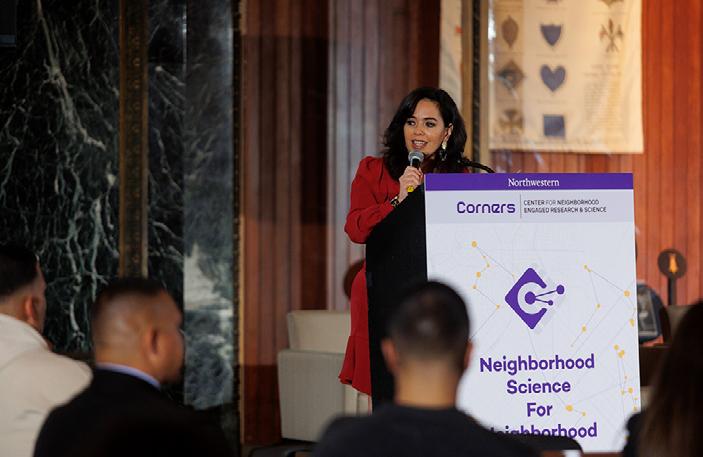
1 minute read
Universal Pre-K Expansion in Chicago Led to More Full-Time Enrollment
Over the 2018–19 school year, Chicago began expanding free, full-day prekindergarten (pre-K) for 3- and 4-year-olds through Chicago Public Schools (CPS). IPR developmental psychologist Terri Sabol and IPR economist Diane Whitmore Schanzenbach recently released an IPR rapid research report, “The Chicago Universal Pre-K Study: The Impact of Chicago’s Universal Prekindergarten Expansion on Access to School-Based Pre-K,” examining it. The report details the impact of CPS’ universal prekindergarten (UPK) expansion in its schools on capacity, enrollment, and programming.
The citywide expansion was designed to start in schools in the most economically disadvantaged communities, with the goal of providing universal prekindergarten by 2023. The Office of the Mayor led the UPK initiative in partnership with the City of Chicago Department of Family Support Services (DFSS) and CPS.
Advertisement
To achieve universal access, Chicago’s UPK model uses a mixed-delivery system: It includes school-based pre-K programs for all 4-year-olds in public elementary schools combined with Illinois Child Care and Development Fund (CCDF), and Head Start programs that serve eligible low-income children in community-based organizations.
“We were delighted to work with our partners in the city on building a highquality evidence base that allows for better informed decision making about the program,” Sabol said.
The report findings demonstrate the impact of UPK expansion on capacity, enrollment, and full-day versus half-day programming in CPS schools. In terms of capacity, the expansion substantially increased the number of available, free, full-day seats in CPS for 3- and 4-year-olds. It also led to increased enrollment of 3- and 4-year-olds in free, full-day pre-K programs in CPS.
Most of the full-day expansion was offset by declines in half-day seats. Importantly, the researchers still see capacity to serve additional children throughout the city based on availability of seats, especially in economically disadvantaged neighborhoods. In sum, UPK has increased both capacity and enrollment in free full-day seats in CPS schools for 3- and 4-year-olds.
Terri Sabol is associate professor of human development and social policy. Diane Whitmore Schanzenbach is the Margaret Walker Alexander Professor. Both are IPR fellows.










